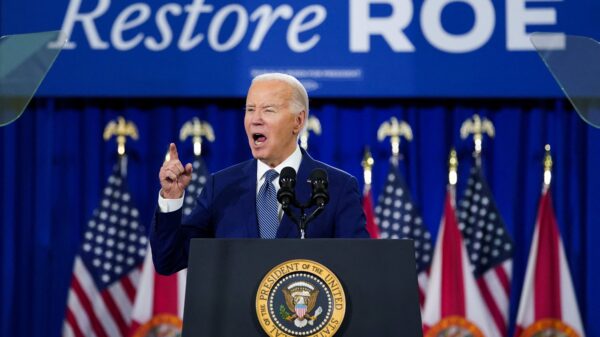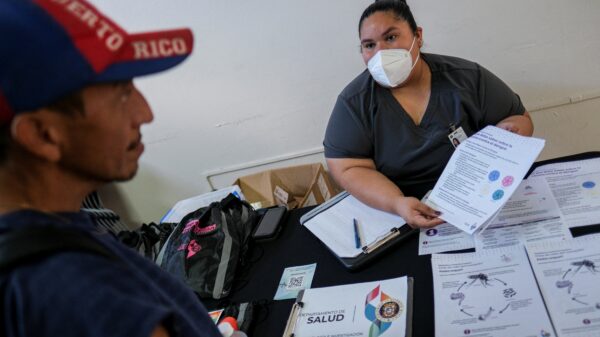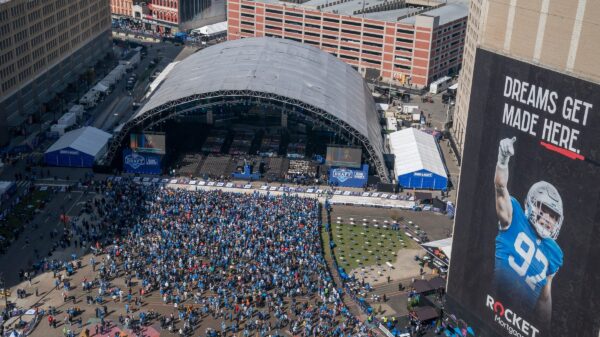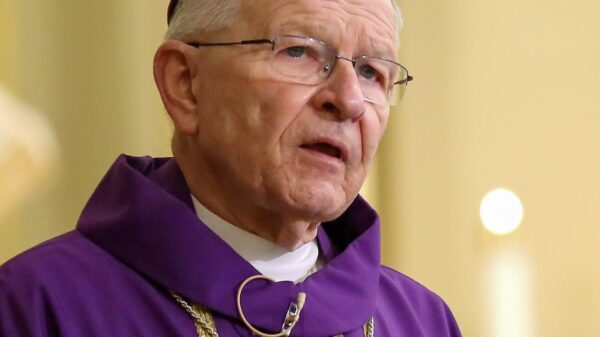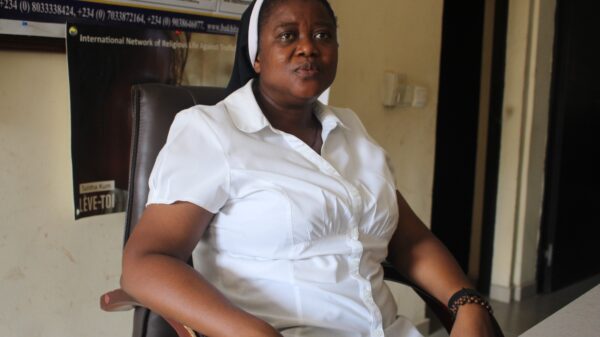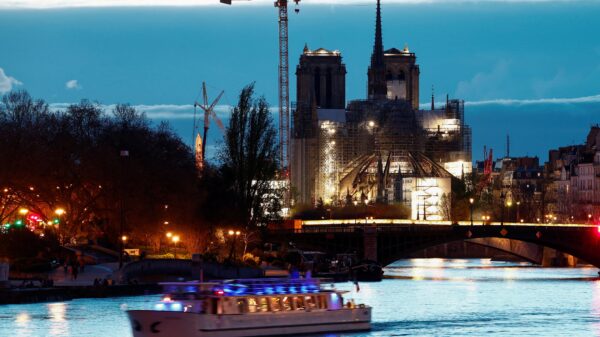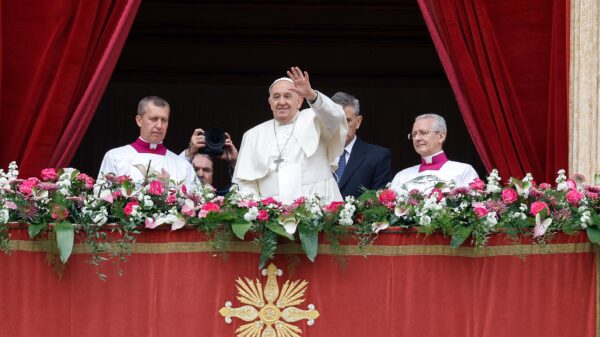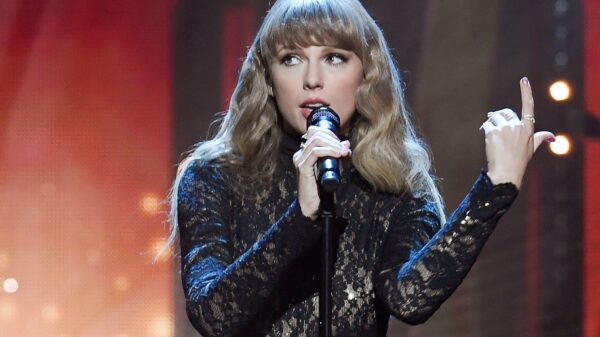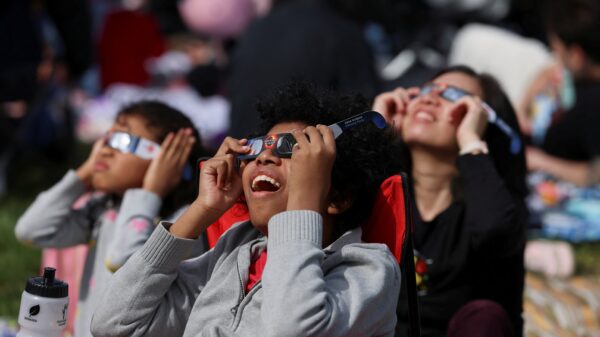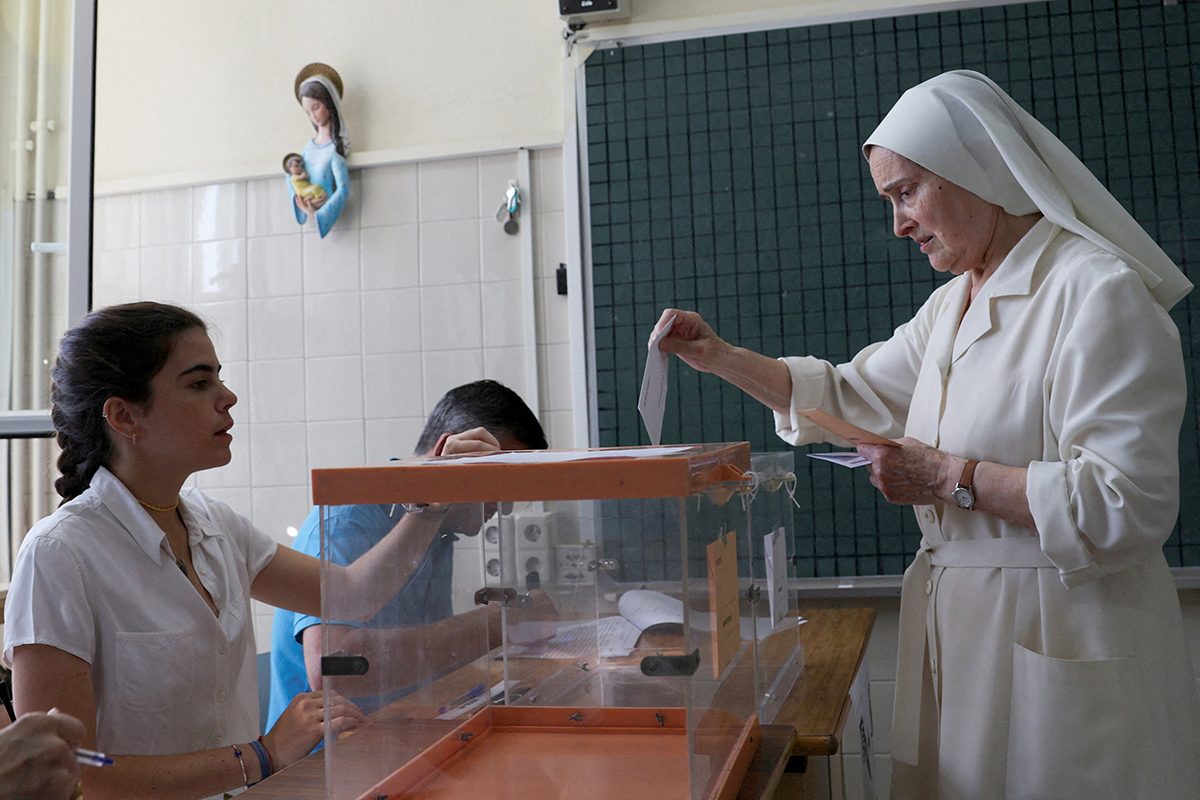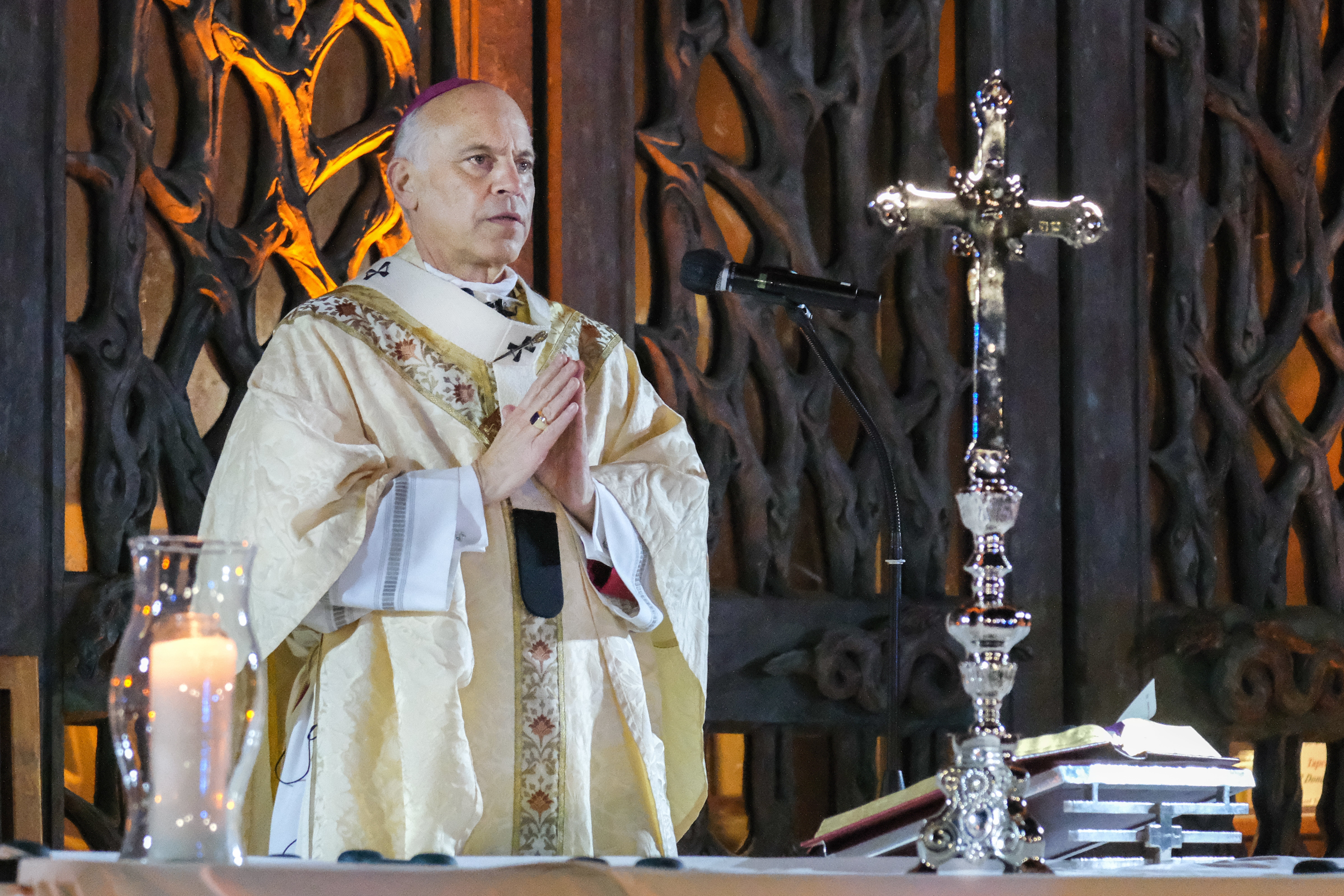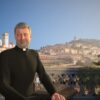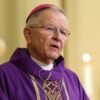(OSV News) — Spain’s newest archbishop has urged his country’s politicians to prioritize national interests, amid fears of political deadlock following July 23 elections, in which neither the conservative opposition Partido Popular (People’s Party) nor prime minister Pedro Sánchez’s Socialist Party (PSOE) secured enough votes to form a government.
“The contribution of believers and the church in the public square must be prophetic and never accommodating — it must respond to present needs and concerns, often experienced in a dramatic way by society,” Archbishop Francisco José Prieto Fernández of Santiago de Compostela told Catholics in a July 25 cathedral homily.
“I ask those elected to dedicate their best efforts to demands of the common good and to building a peaceful society founded on truth, justice and freedom, where service above legitimate political differences is always the horizon of political responsibility.”
The archbishop was preaching at his installation by the Vatican’s Madrid nuncio, Archbishop Bernardito Auza, after Sunday’s election gave the PP 136 seats and the PSOE 122 in the 350-member lower house of Spain’s Parliament — Cortes Generales, with the far-right Vox and far-left Sumar parties each claiming 33 and 31 seats respectively.
He said a “prophetic attitude” was needed, with “attractive language and kind eyes,” as well as “a healthy sense of humor and intelligence to distinguish what really matters.”
However, a senior lay Catholic told OSV News the ballot outcome had caused consternation among Spanish church leaders, with many fearing a fresh election before Christmas aimed to bring conclusive outcome, would divert attention from pressing needs.
“The Sunday results highlight the tensions and polarizations now afflicting Spain — we’ve moved from the dream of a multiparty system, based on understanding, to a dynamic of highly exaggerated left and right fronts,” said Jesús Bastante Liébana, chief editor of Spain’s online Catholic Religión-Digital news agency.
“We live in an excessively divided society, focused on easy and immediate responses, not on stable, lasting projects concerned for future generations. This has led inevitably to politics of black and white, without nuances or any possibility of agreements based on the common good.”
Prime minister Sánchez, now 51, brought the parliamentary elections forward from December, after the PP and Vox scored substantial gains in May municipal and regional voting, which was widely seen as a referendum on his left-wing coalition government.
The vote brought modest gains for his PSOE and losses for the Vox party, which was widely expected to form a coalition with the conservative PP, headed by Alberto Núñez Feijóo, although both Feijóo and Sánchez said they would try to rally the required majority of 176 in time for the new parliament’s convening on Aug. 17.
In a July 24 statement, the bishops’ conference general secretary, auxiliary Bishop Francisco César García Magán of Toledo, said the election result called for “dialogue and agreement,” and “a lofty vision by political leaders,” adding that political deals should be sought “looking not for partisan advantage but for the civic good.”
However, another bishop described the deadlock as “diabolical,” and asked Catholics to pray that politicians would “put themselves in the presence of God.”
“I also request prayers for King Felipe VI, who has a constitutional duty to entrust the formation of a government to one of the candidates,” Bishop José Ignacio Munilla Aguirre of Orihuela-Alicante told his diocesan Catholic radio July 24.
“There are, however, certain things which only God can resolve. What does Spain benefit from a panorama as fractured as we’ve seen in these elections?”
Sánchez became the first prime minister of Spain to decline taking his inaugural oath on the Bible in June 2018, and formed a left-wing coalition with the Podemos party in January 2020 under a program pledging liberal changes.
The government clashed with the Catholic church over a November 2020 Education Law, which downgraded religious teaching and restricted state funding for Spain’s 2548 Catholic schools, as well as over laws liberalizing abortion and state-funded euthanasia, and permitting 16-year-olds to re-register their gender via a court declaration.
A draft Family Law, recognizing 16 different family types, was suspended for the election campaign, although a Democratic Memory Law, adopted in October, will ban crosses and monuments deemed to exalt the former dictatorship of Gen. Francisco Franco (1892-1975), while tax exemptions on church donations and public works, established in 2001 by an agreement with the Vatican, also were scrapped March 29.
In his OSV News interview, Jesús Bastante said many Catholic bishops had counted on a PP-Vox majority to help preserve “the Christian truths of faith” against current secularization, and would be “greatly disappointed” by the election result.
However, he added that others would be relieved, having feared an “extreme-right government” could “force the vision of a national-Catholic Spain that has nothing to do with reality.”
“Spanish Catholics are more focused on current conditions than the church hierarchy,” the Religion-Digital editor told OSV News.
“There’s surprise, since no one expected the left to withstand the push from the political right. But there’s also relief that, for the moment, the chances of the reactionary far-right entering government and putting recent social improvements at risk have been halted.”
In his July 25 homily, Archbishop Prieto Fernández said Spaniards needed to relearn a “language of testimony and love,” that “converts any human being into a neighbor,” while “striving to defend what is fair” without “descending into naive niceties.”
He added that no political policy could be “fully consistent with the kingdom of God,” and said Catholics also faced an “inalienable task” to assert principles of “Christian brotherhood in society.”
However, Jesús Bastante said the likelihood of fresh elections in late 2023, and of “sharpened sabers for a hot autumn,” suggested much-needed stability was still far off, along with the “moderate debates” needed for confronting Spain’s problems.
“It’s never too late, but the intellectual quality and vision of our politicians, regardless of affiliation, leaves much to be desired — and the same can be said of our media, judiciary and other institutions,” the Catholic chief editor told OSV News.
“We have hooliganized ourselves, so we now only see evil in our opponents and good in our allies. Although the men and women who make up society are more moderate than our political and religious leaders, it’s difficult to foresee any new beginning.”
Although 53.7% of Spain’s 47 million inhabitants still identify as Catholic, according to March data, religious vocations and Mass attendance have dropped sharply across the church’s 70 dioceses and 23,000 parishes, while well over half of all 18- to 34-year-olds declare themselves nonreligious.
Bishop Santos Montoya Torres of Calahorra and La Calzada-Logroño told Spain’s Catholic Alfa y Omega weekly he had “experienced a cordial attitude” from supporters of all parties while acting as polling station monitor July 23.
“There are good people on all sides, working to preserve the democratic system,” the bishop said.
“The church has to continue doing its job proclaiming the Gospel, whichever political party rules and whatever circumstances it finds itself in.”
Jonathan Luxmoore writes for OSV News from Oxford, England.


